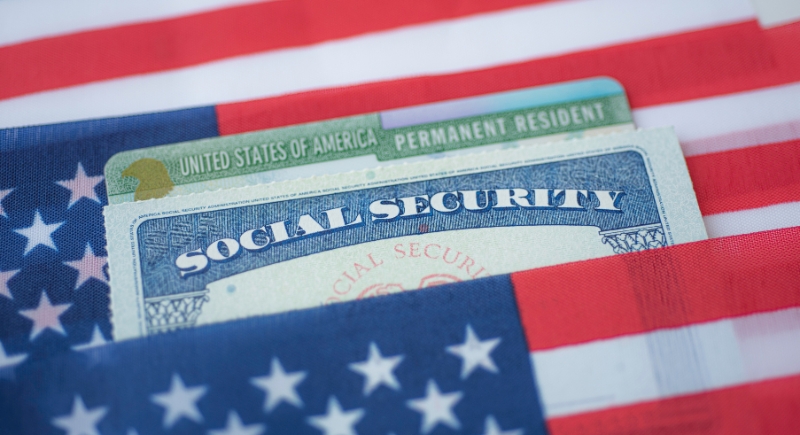No one dreams about Social Security when they say “I do,” but down the road, it becomes one of the biggest financial moves you’ll make as a team. The decisions you make together can shape how much you’ll actually receive. When done right, you could unlock thousands more over your lifetime.
Who Qualifies?

Credit: freepik
So you want to snag Social Security benefits through your spouse? The good news is that it's possible, but there are a few hoops to jump through first. If you’re 62 or older, married for at least a year, and your spouse has filed, you’re halfway there. If you’ve got a child under 16 or with a disability, you qualify, too.
Decoding the Benefit

Credit: freepik
Spousal Social Security can be a game-changer if you play it right. At your spouse's full retirement age (FRA), you’re eligible for up to 50% of their benefit. But, if you start early, say at 62, don’t expect the full 50%—you’ll get less, around 32.5%.
Your Own Benefit Matters

Credit: Canva
If you’re 62 or older and filed after January 2, 2016, you’re automatically considered for both your personal and spousal benefits when you apply. But, and it’s a big but, you only get the larger of the two, not both. If your own benefit is bigger, you get that.
Early Bird Doesn't Always Get the Benefits

Credit: Getty Images
Claiming early means a smaller check, and once it’s reduced, it’s permanent. For the first 36 months, you lose about 0.694% per month, then it drops even further after that. There's no benefit to waiting past your FRA for spousal claims. Know the rules, and maximize your Social Security!
Your Partner’s Timing Affects Your Benefits

Credit: freepik
Your spouse has to file first, whether for retirement or disability. If they wait past their FRA, so must you, even if you’re ready to go! This can throw off your retirement plans, especially if you’re relying on that extra income. However, for those who are divorced, the rules are a bit more flexible.
Navigating Divorce and Social Security

Credit: freepik
Divorce may have ended your marriage, but it doesn’t always cut the connection to your ex’s Social Security benefits. If you’re 62 or older, have been married for 10 years, and are currently single, you can claim benefits from your ex-spouse’s work record—even if they haven’t filed! It won’t affect their benefits or their current spouse’s.
What to Expect When Remarrying

Credit: freepik
When remarrying, if you tie the knot before 60, you can kiss spousal benefits from your ex goodbye, at least for now. But if your new marriage ends, you can claim benefits from your former spouse again. Plus, if you remarry after 60 (or 50 if you’re disabled), you’re still eligible for survivor benefits from a deceased spouse.
A Small Boost for Spouses

Credit: Getty Images
In 2025, Social Security gave a 2.5% boost to benefits, including spousal payouts. While it’s based on the Consumer Price Index to keep pace with inflation, it doesn’t always cover the full rise in healthcare or housing costs. Still, a little extra cash in your pocket never hurts, especially when planning for a more stable retirement!
Medicare for You and Your Spouse

Credit: freepik
If your spouse has worked and paid Medicare taxes for 10 years, you may be eligible for premium-free Part A at 65, even without your own work history. This also applies to divorced spouses, as long as the marriage lasted 10 years and you're unmarried. But heads up—Part B, which covers doctor visits, requires a monthly premium of $185 in 2025.
Tax Implications of the Benefits

Credit: freepik
Before you celebrate spousal Social Security benefits, know that they could be taxed. If your combined income (i.e., your adjusted gross income plus half of your Social Security) falls between $32K and $44K, up to 50% of your benefits might be taxable. Go over $44K, and it jumps to 85%.
Extra Support for Tough Times

Credit: Getty Images
If your spouse receives Social Security Disability (SSDI), you might be eligible for spousal benefits too. You can qualify if you're at least 62 years old, or if you're caring for the recipient’s child who’s either under 16 or disabled. If you're caring for a child, your benefits won't be reduced for claiming early. And if you're disabled yourself, Social Security pays you whichever benefit is higher—your own or the spousal amount.
Getting Ready to Apply

Credit: Getty Images
Applying for Social Security spousal benefits requires specific documentation to verify your eligibility. Grab your Social Security card, birth certificate, and proof of U.S. citizenship (or lawful status). Don’t forget a certified copy of your marriage certificate, plus your spouse’s Social Security number and birthdate. If divorced, you’ll need your divorce decree, too.
Can You Still Get Them Abroad?

Credit: freepik
Living overseas and wondering if you can still receive spousal benefits? The answer is yes—if you’re married to a Social Security recipient, even outside the U.S. If you’re not a U.S. citizen, payments usually stop after six months abroad. But if you're from a country with a Totalization Agreement (like Canada, the UK, or Japan), you get to receive benefits.
A Big Win for Public Servants

Credit: Canva
As of January 2025, the Government Pension Offset (GPO)—that pesky rule that slashed your Social Security spousal or survivor benefits because of a government pension—is officially repealed. That means teachers, firefighters, and police officers who’ve had their benefits reduced will now see the full amount restored.
